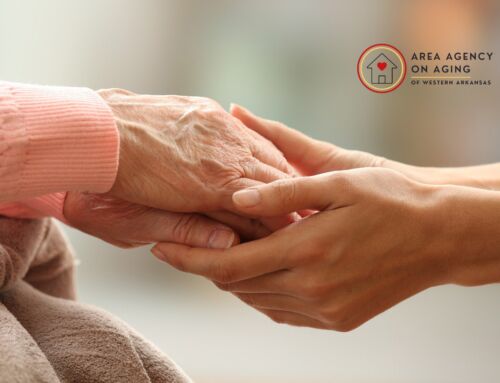Caring for elderly parents at home can be both fulfilling and exhausting. While you want them to feel safe, comfortable, and independent, the demands can be overwhelming. From managing daily care to handling legal and financial concerns, having accurate information is crucial to making informed decisions. This guide will walk you through key caregiving responsibilities, emotional challenges, home safety tips, and when to consider professional care so you can confidently navigate the complexities of caring for elderly parents at home.
Key Takeaways:
- Daily Care & Hygiene: Assist with bathing, dressing, and grooming. Install grab bars and shower chairs for safety.
- Meal Preparation: Provide nutritious, simple meals. Staying hydrated is important.
- Medication Management: Use pill organizers and reminder apps. Track health metrics and share updates with doctors.
- Emotional Strain: Caregiver guilt is common. Speaking with a therapist or joining a support group can help.
- Financial & Legal Concerns: Medicare doesn’t cover long-term home care. Medicaid, VA Benefits, and caregiver contracts may help. Obtain Power of Attorney (POA) and advance directives early.
- Preventing Burnout: Set limits, use respite care, and prioritize your well-being.
- Home Safety: Modify the home with grab bars, better lighting, and mobility aids.
- Professional Care: Explore in-home care, assisted living, or nursing homes based on safety and medical needs.

Responsibilities for Caring for Elderly Parents at Home
Daily Care and Hygiene Assistance
When you're caring for elderly parents at home, daily tasks like bathing, dressing, and grooming may become challenging as mobility declines. Some of your parents may need reminders, while others might require more hands-on support. It’s important to prioritize safety, so installing grab bars in the bathroom or using shower chairs can help reduce the risk of falls. Always be mindful of their privacy and dignity. If managing hygiene becomes difficult, you might want to consider seeking help from a professional caregiver.
Meal Preparation and Nutrition Management
Proper nutrition is essential for keeping your elderly parents healthy and strong. As part of caring for elderly parents at home, some of them may forget to eat or find cooking overwhelming. A simple meal plan with easy-to-make options can ensure they get the nutrients they need. Fresh fruits, vegetables, lean proteins, and whole grains are excellent choices. Additionally, staying hydrated is just as important, as older adults often forget to drink enough water.
Medication Management and Health Monitoring
Many elderly parents take multiple medications daily, and missing doses or taking them incorrectly can lead to serious health problems. To make medication management easier, consider using a labeled pill organizer to keep track of their medications. Setting phone alarms or using medication reminder apps can also be beneficial. Along with medication management, monitoring blood pressure, blood sugar levels, and mobility can help you detect early signs of trouble. Keeping a health journal is an effective way to track changes and share updates with their healthcare providers.
If managing their care feels overwhelming, This Caregiving Guide provides valuable insights.
Managing Emotional Challenges of Elder Care
Caring for elderly parents at home can feel overwhelming, and guilt often creeps in, making you wonder if you're doing enough. It's important to remind yourself that no one provides perfect care all the time. It's common to feel like you should do more, and caregivers often experience stress, exhaustion, and frustration. Recognizing that you can't meet every need is the first step in managing these emotions. Experts from Stanford Caregiving Research stress the importance of emotional support in managing caregiver stress, so don’t hesitate to reach out.
Caring for elderly parents at home can feel isolating, especially if you find yourself giving up social activities and hobbies. This can lead to loneliness, but strengthening your support system can help prevent that. Start by asking family members to share responsibilities. Even small contributions, like bringing groceries or spending a few hours with your parent, can lighten the load. Connecting with other caregivers through online forums or local groups can provide much-needed emotional support. If family assistance isn’t available, community resources can step in. Caregiver support organizations, such as Tips for New Caregivers, also provide practical advice to help ease your daily challenges.
When you're caring for elderly parents at home, loving them doesn’t mean sacrificing your own well-being. Setting boundaries is crucial for protecting your mental health and ensuring that you can continue providing quality care over time. Boundaries can be as simple as scheduling regular personal time. Let your family know when you need a break, whether it's for an afternoon off or a weekend away. Saying "no" to tasks beyond your capacity is perfectly reasonable. Professional caregivers can handle specific tasks, allowing you to focus on providing emotional support.
Compensation for Caring for Elderly Parents at Home
Caring for elderly parents at home can quickly become expensive. Between medical supplies, home modifications, and lost wages, the costs can add up fast. While Medicare covers short-term medical care, it does not pay for long-term home care. However, Medicaid can offer financial assistance for low-income seniors, covering in-home care and medical costs. Keep in mind that programs vary by state, so it’s important to check local guidelines for specific details.
Private health insurance rarely covers long-term care, and many families find themselves paying out-of-pocket or relying on long-term care insurance, which must be purchased years in advance. If you're a veteran or the spouse of one, you may qualify for benefits that can help reduce costs. Knowing your options ahead of time can help you avoid financial strain.
If you're caring for elderly parents at home, you may be eligible for financial support. Medicaid-funded programs, such as Home and Community-Based Services (HCBS), allow seniors to hire family members as caregivers. Qualifications and reimbursement rates vary by state, so be sure to research what’s available in your area. In some states, Cash and Counseling programs provide flexible funds for caregiving expenses, which can be a helpful resource.
For veterans, the Veterans Directed Care program offers a personalized budget that can include payments to family caregivers. Another option is the Aid and Attendance benefit, which increases pensions for veterans who need daily assistance. Additionally, certain long-term care insurance policies reimburse family caregivers if the policy includes this coverage. If your parent can afford it, a formal caregiver contract ensures proper payment and legal protection. Lastly, some tax credits and deductions for caregiving expenses may apply, making the financial side of caregiving more manageable.
Importance of Legal Documents
Without the right legal documents, managing an aging parent’s affairs can be difficult. Power of Attorney (POA) allows a caregiver to oversee financial and medical decisions. A Financial POA covers bills, banking, and property, while a Healthcare POA is needed for medical choices when a parent is unable to decide for themselves.
Advance directives, such as a Living Will, specify a parent's medical preferences, including end-of-life care. Without these, doctors may not follow their wishes. A HIPAA authorization grants access to medical records.
Families should also review estate plans, wills, and beneficiary designations to ensure assets are distributed as intended. Consulting an elder law attorney can help clarify legal matters and prevent disputes. For guidance, AARP Caregiver Resources offers valuable advice on financial and legal planning. Taking these steps reduces stress and protects a parent's wishes.
Caring for an aging parent is challenging, but you don't have to do it alone. Managing daily care, meals, and medications while juggling legal and financial matters can feel like a lot. Emotional strain is real, but setting boundaries and seeking support makes a difference. Burnout is a possibility, so self-care and respite services should not be overlooked. Home modifications help maintain safety, but professional care may eventually be necessary. Planning ahead and using available resources allow you to provide the best care while protecting your own well-being. Stay informed, ask for help, and make choices that work for everyone.
Reach Out for Assistance
If you're caring for elderly parents at home, Area Agency on Aging of Western Arkansas is here to support you. We offer a range of services tailored to assist caregivers like you, from in-home care options to financial guidance and emotional support. Reach out today to learn how we can help you provide the best care for your loved one.


